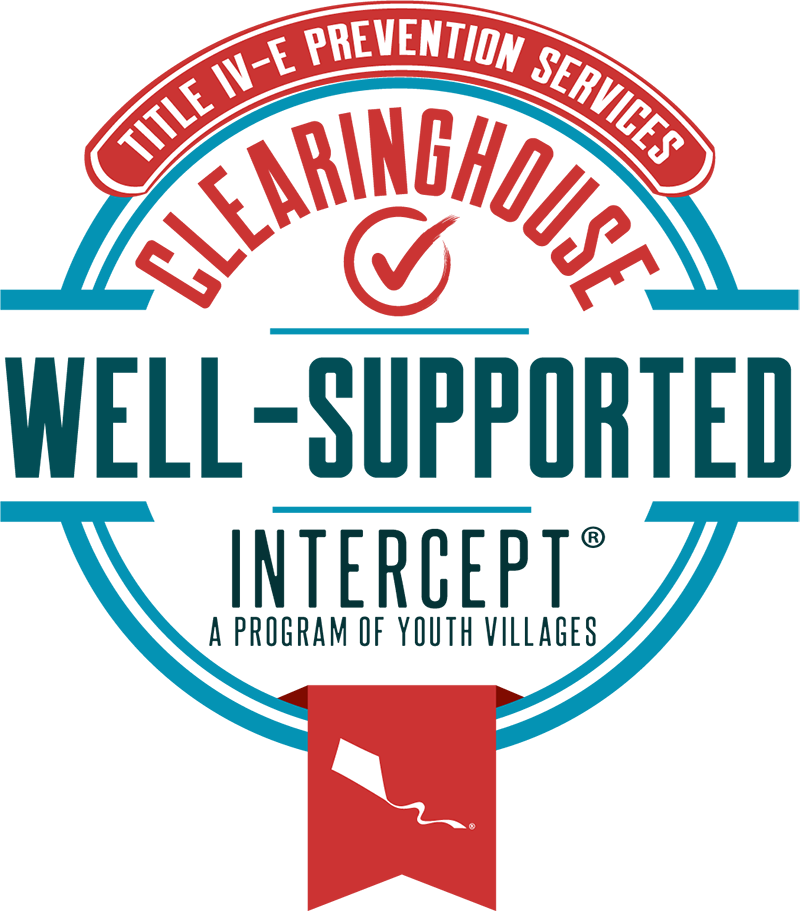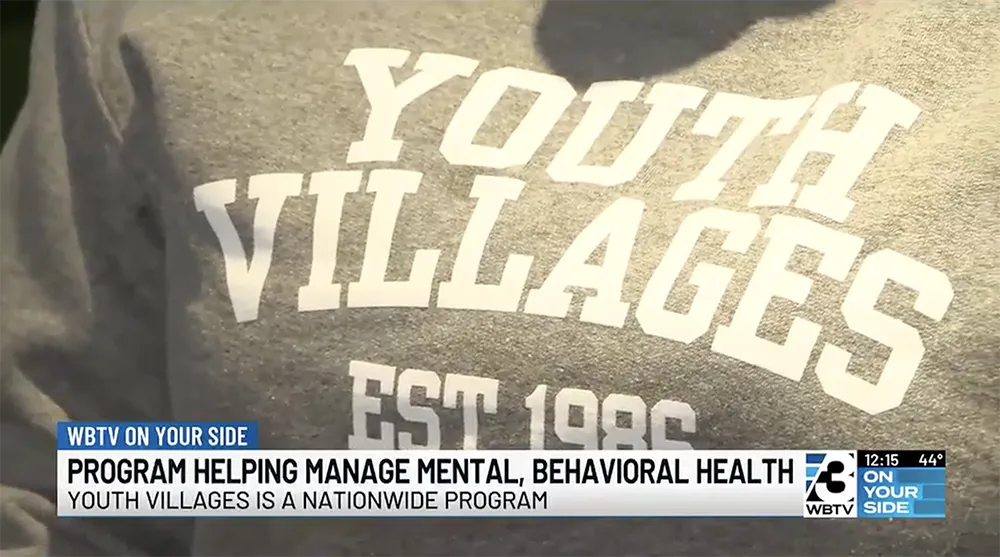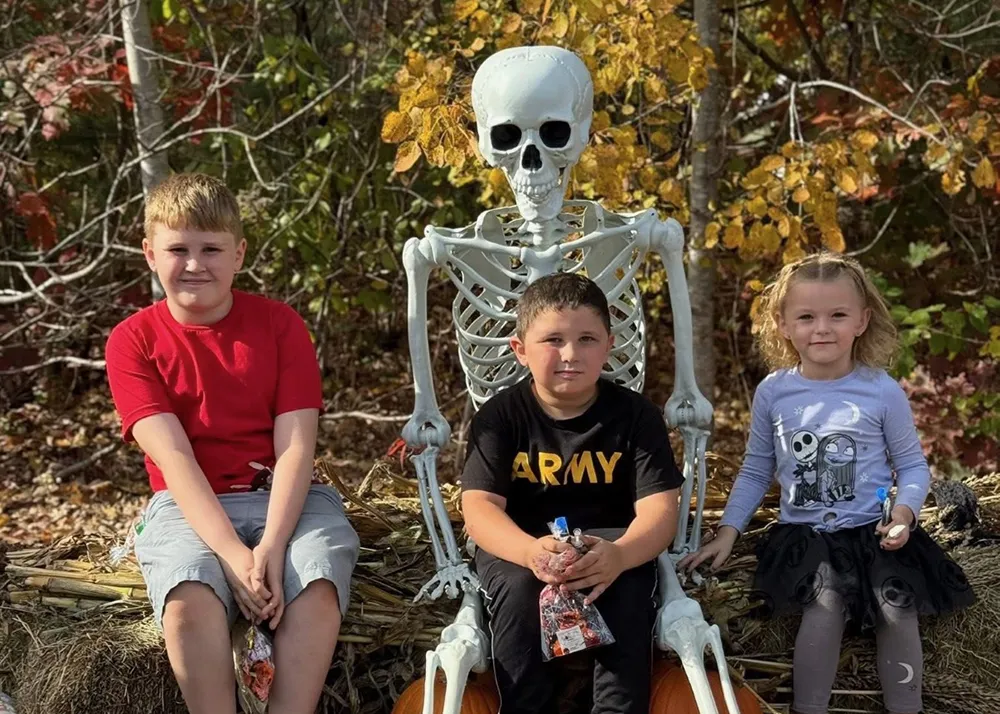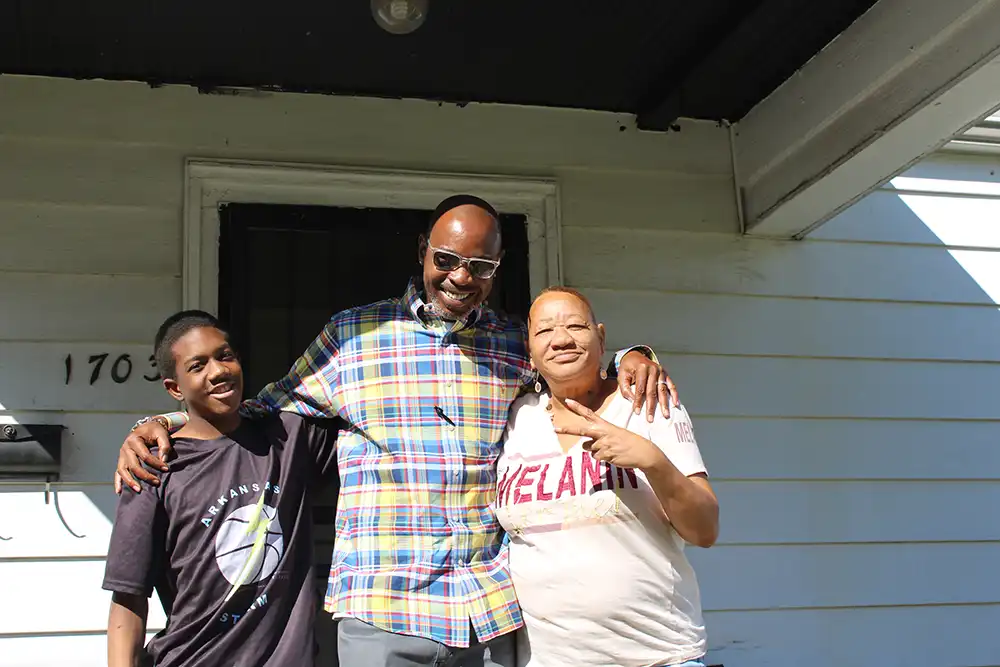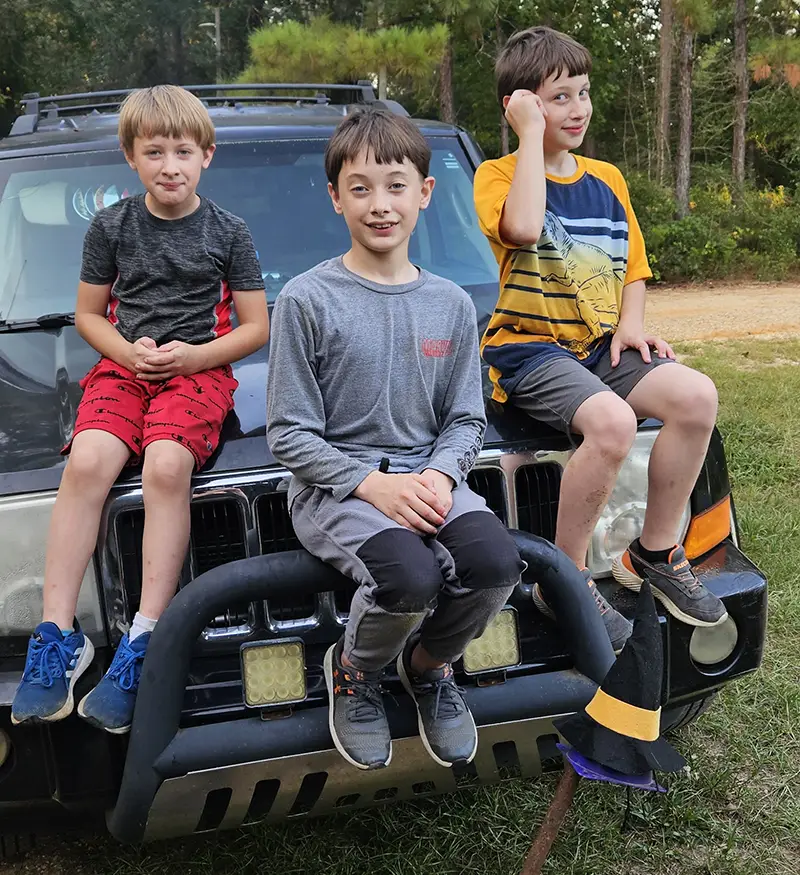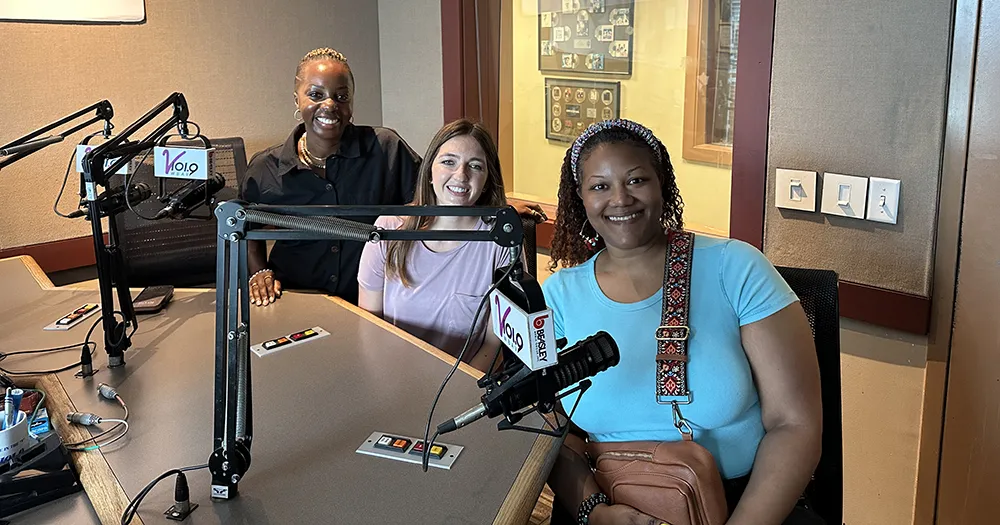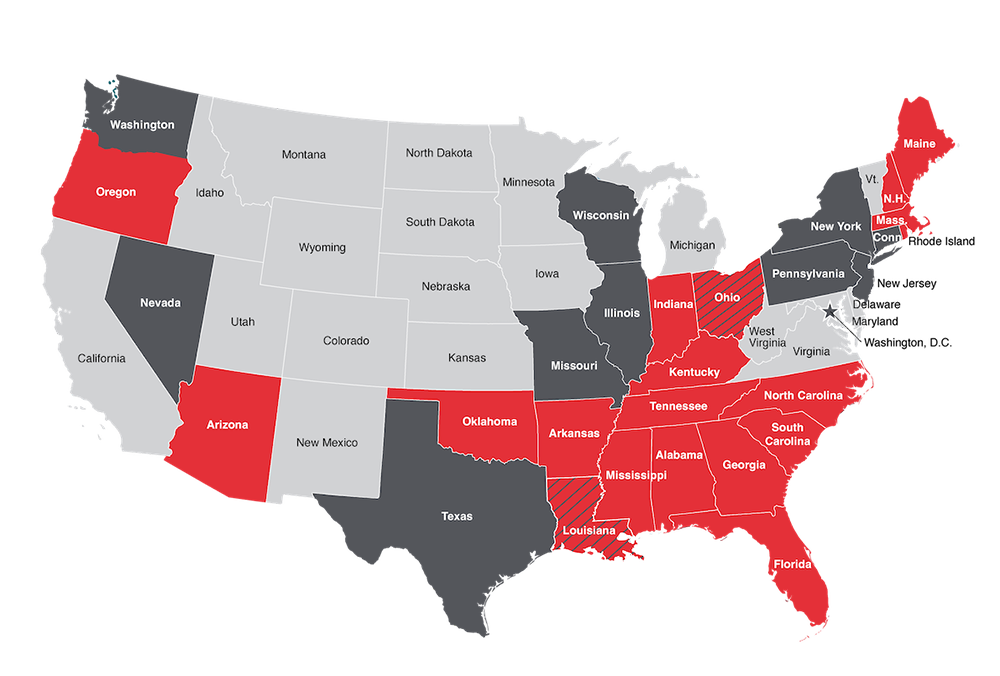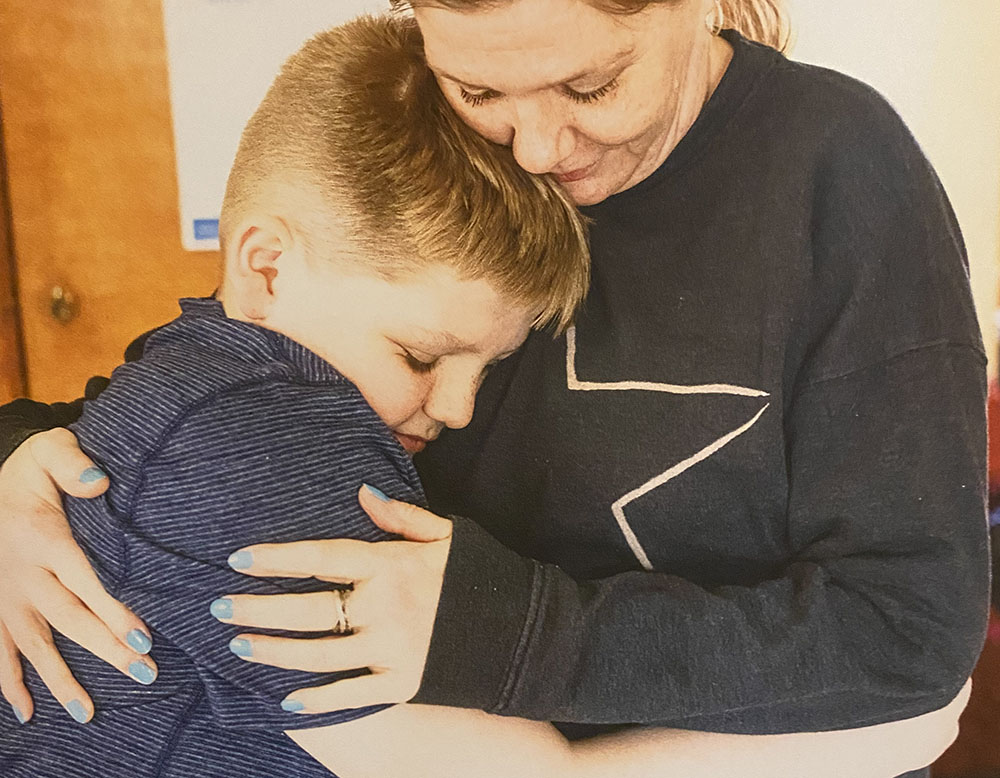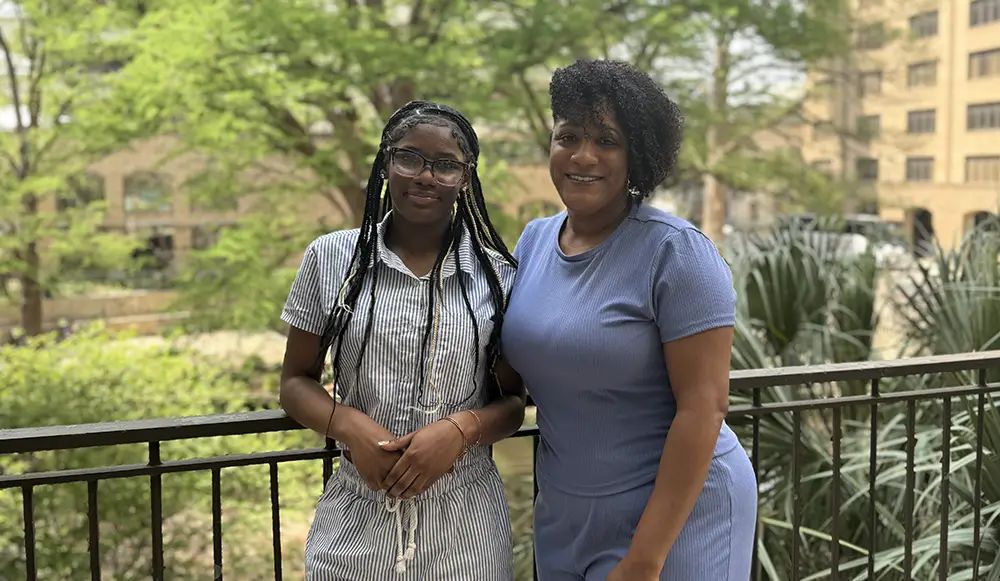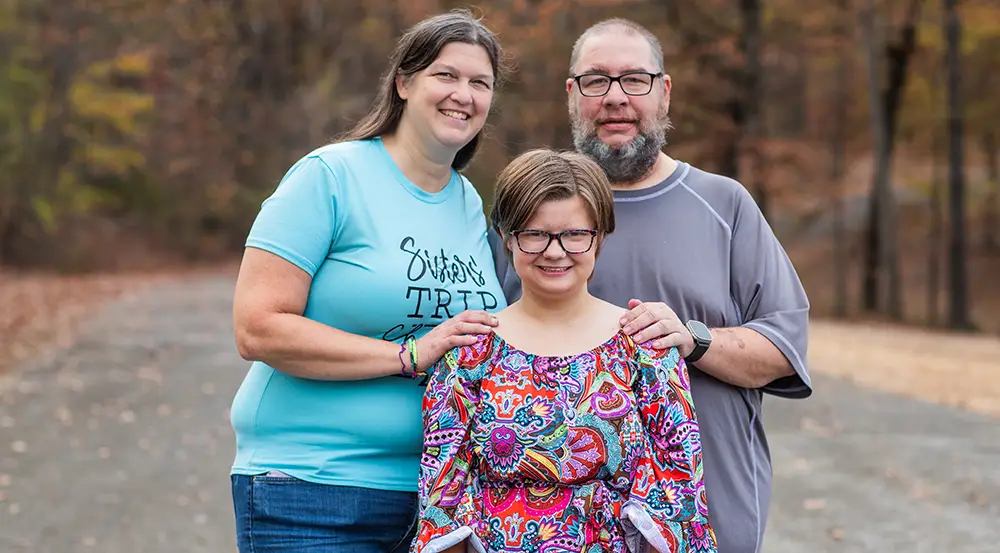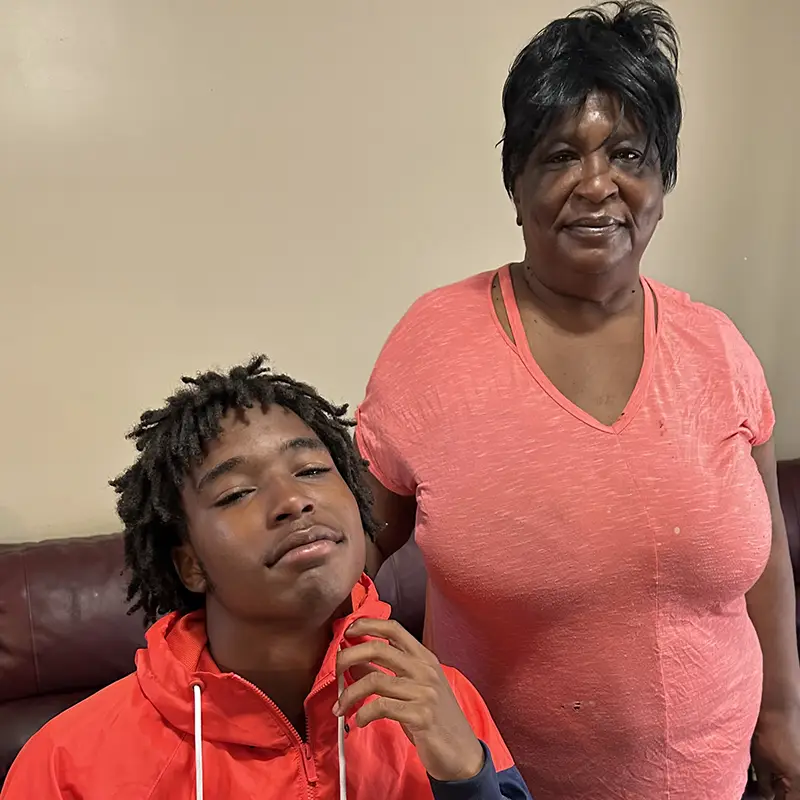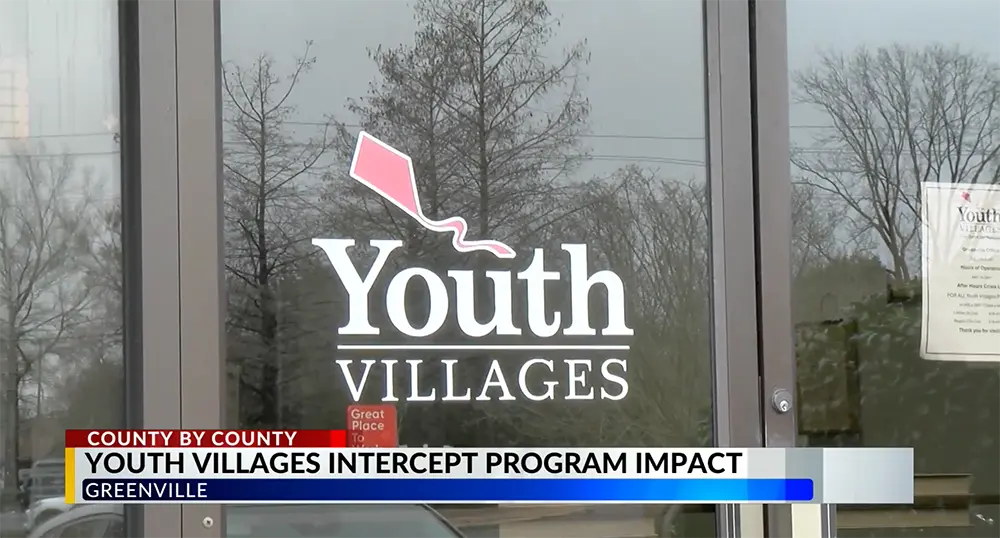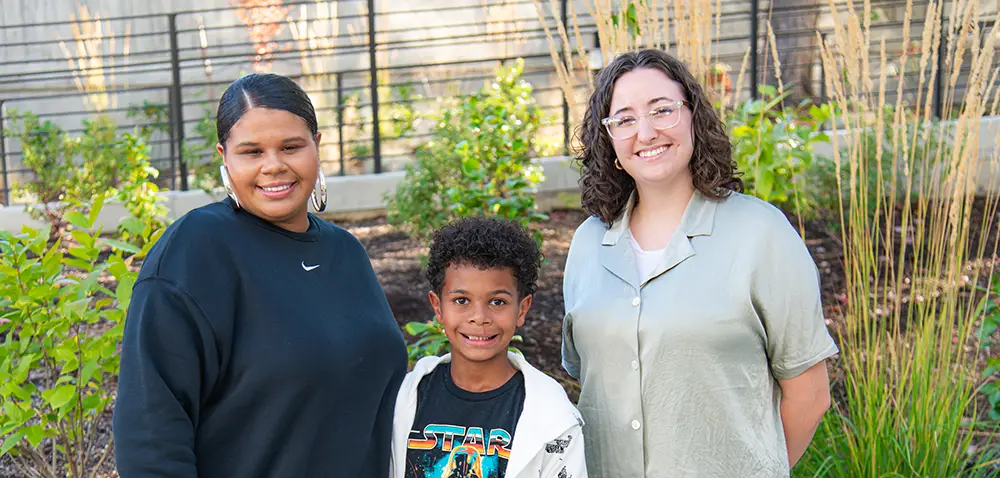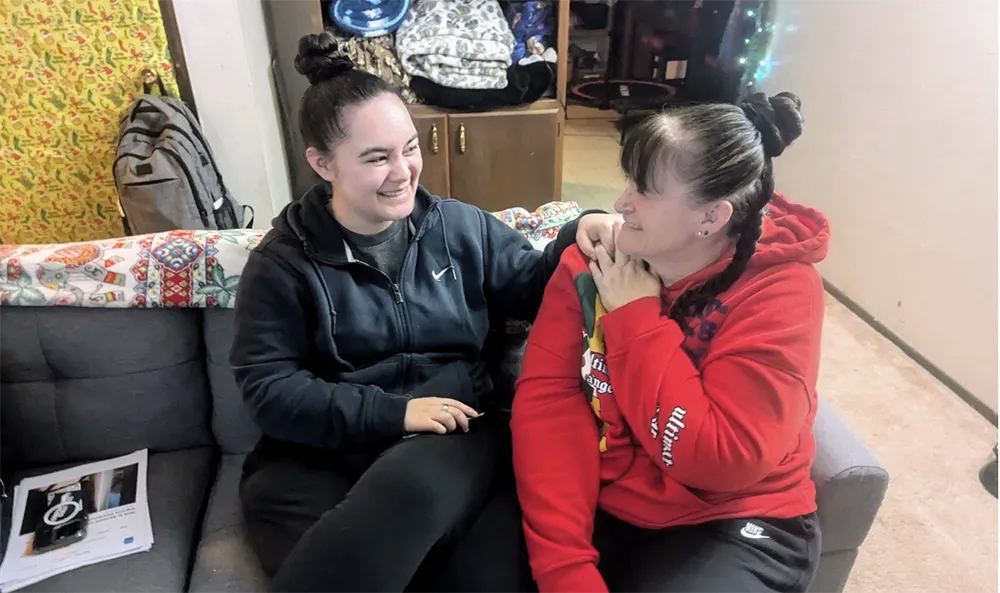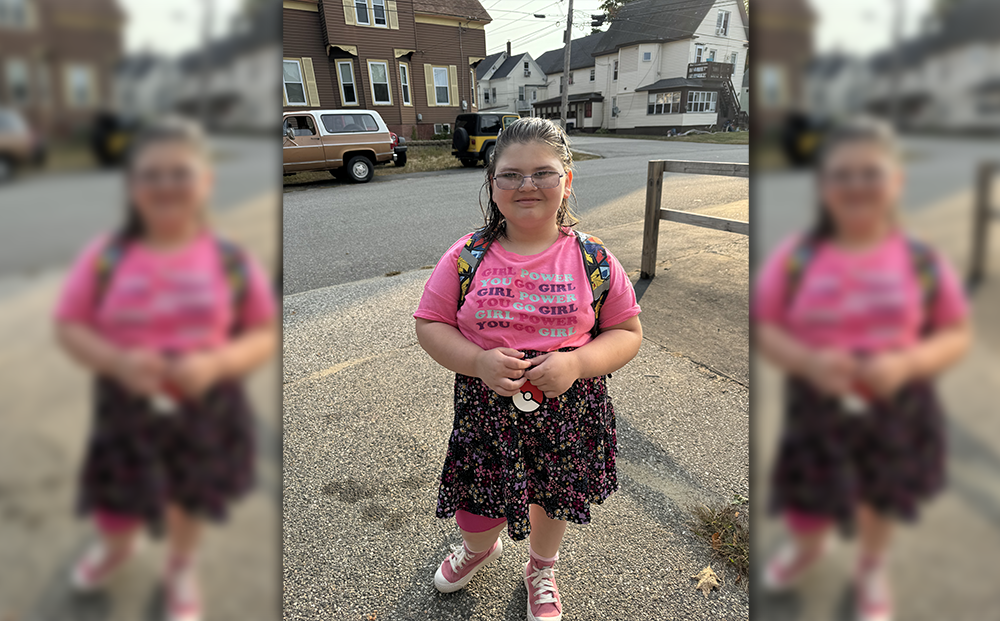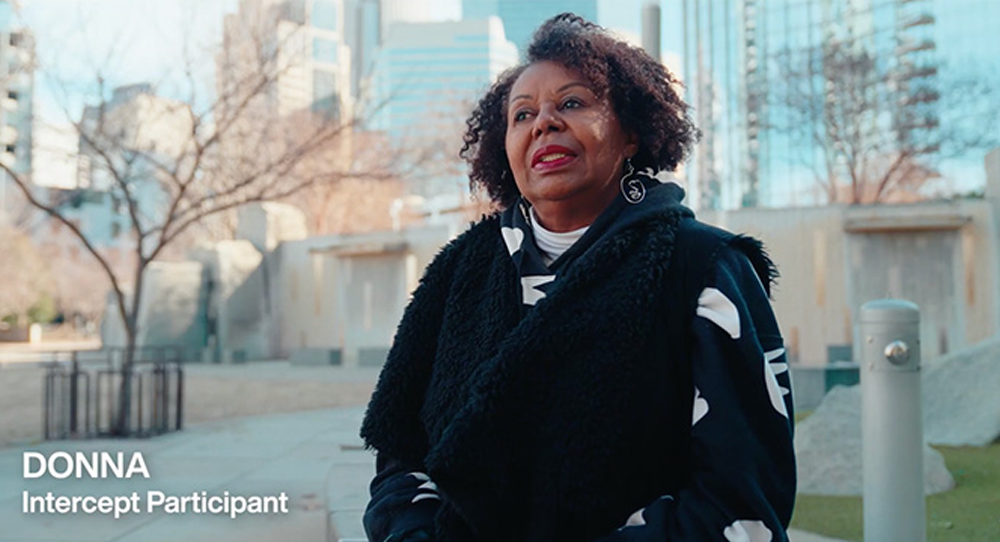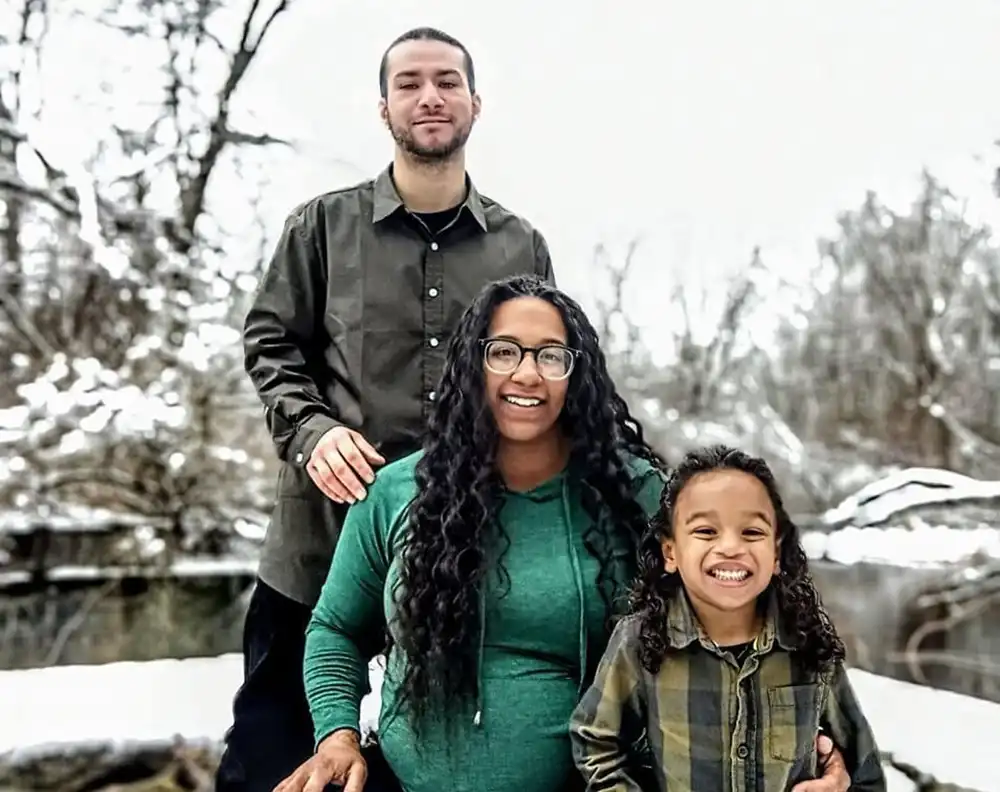Intercept
strengthens families to prevent or limit the need for foster care
Youth Villages Intercept program model receives well-supported designation from Family First Clearinghouse
Youth Villages offers Intercept through direct services and certified organizations that are licensed to implement the program model. For more information on bringing Intercept to your jurisdiction, email: strategic.partnerships@youthvillages.org
Circumstances can overwhelm any family
Problems can come when a child acts out continually at school, causing school suspensions… Opioids prescribed for an injury lead to parental substance use and child neglect… A layoff brings mounting bills and possible eviction… domestic violence… incarceration… hundreds of different issues can throw a family into crisis.
When children are at high risk of entering foster care or have been taken into state custody, Youth Villages Intercept can step in to change a family’s trajectory with intensive support, new parenting and communication skills, and evidence- and strengths-based mental health intervention services.
- Youth Villages Intercept serves children of any age (infant to age 18) who have serious emotional and behavioral problems or have experienced trauma, including abuse and/or neglect.
- Prevention services last four to six months.
- Family reunification services are six to nine months in duration.
Overview
“Well-Supported” by IV-E Clearinghouse
Program Model
Rigorous Clinical Studies
How Intercept Works
Clinical Process
We Are A Force For Families®
Intercept is an integrated approach to in-home parent skill development that offers a variety of evidence-based practices to meet the individualized needs of a family and child. Intercept is appropriate for families with children of all ages who have serious emotional and behavioral problems or who have experienced abuse and/or neglect. The program specializes in working with children who are at high risk of entry or re-entry into foster care by helping families retain children in their custody (prevention and reunification).
How does Intercept Work?
Family intervention specialists work intensely with only four to five families at a time, allowing them to focus on meeting a child and family’s individual needs.
- Family intervention specialists meet with families two to three times each week for sessions in the home that are built around the family’s schedule and convenience. They are on-call 24/7 in case of family emergency.
- Family intervention specialists address issues with schools, courts and children’s services that can seem overwhelming. They stand with parents at school or legal meetings and advocate for them as multiple expectations and requirements are met.
- Family intervention specialists work with licensed clinicians to build treatment plans and work step-by-step with the family and child as new parenting techniques are learned and interventions change behavior.
Why is Youth Villages Intercept successful?
Intercept does “whatever it takes” to help children and parents succeed. Specialists bring intensity and focus to a family’s individual challenges.
- It’s a comprehensive program that includes a therapeutic approach to parenting skills education, school interventions, development of positive peer groups, and extensive help for families and children in accessing community resources and long-term, ongoing support.
- Family intervention specialists work with both the child and the parents or caregivers to address issues that are impacting the stability of the family.
- Intercept includes GuideTree, a comprehensive online database of evidence-based interventions and tools that specialists use to identify drivers of behavior and family issues. They consult with licensed clinicians to develop treatment plans that are continually updated as the family’s skills develop and their needs change.
- Specialists work in teams with a supportive supervision and consultation process.
- Outcomes are continually tracked and results analyzed to enhance the program model.
Stories of Hope
Helping children and families live successfully
Family speaks about program to help children with mental, emotional or behavioral health
Parents can now learn new ways to collaborate with their children when it comes to their mental and behavioral health.
Sam finds stability with Intercept: A New England success story
Before Youth Villages entered their lives, Sam described her home as “complete chaos.” Her three children, ages 10, 8 and 5, struggled without structure.
Amir and Judy’s journey to building a home
From a very young age, Amir experienced instability and trauma in his house. This caused him to lash out at home and school with verbal and physical aggression. At 11 years old, Amir was involved in a gun incident which left his father paralyzed.
A place to call home
When Angela received a phone call one Monday evening, she didn’t realize how much her life would change. On the other end of the line was Jenna, a specialist from Youth Villages
Healing at home: Intercept helps family rebuild after loss
Living conditions deeply influence the well-being of children and their families. Habitat for Humanity highlights that a child’s home environment significantly affects their physical, cognitive and emotional development.
When families heal, children thrive: How one family found support through Intercept
A young person’s success often depends on the support they receive from those around them. Without a healthy support system, navigating life’s challenges can become overwhelming, especially for children who have experienced trauma.
Charlotte Community Connections Podcast
Mental health is often seen as a personal struggle, —but what if healing could happen in living rooms, libraries and community spaces, not just clinics?
Partners launch Youth Villages’ Intercept program model in Texas, Wisconsin
Nonprofits in Texas and Wisconsin are now helping children and families through Youth Villages’ evidence-based Intercept® program model. Texas.
A second chance for Amanda and Jack
When Amanda landed in the ICU due to complications from alcoholism, her 9-year-old son, Jack, faced the very real possibility of being removed from his home.
Healing at home: Intercept strengthens mother and daughter relationship
Shavonda’s daughter, Amiyah, had been in and out of residential facilities since she was 13 years old. Amiyah faced serious challenges like running away and getting into unsafe situations that eventually led to involvement with the juvenile justice system
Intercept helps a family tackle life’s stress together
For many families, balancing excessive stress and maintaining a stable home environment for children may require extra support. Intercept, a program of Youth Villages.
A place to call home: Jeremy and Patricia’s journey to reunification
Life challenges might cause a bump in the road for most families. But for others, trials can result in major upheavals in their lives. Jeremy and his grandmother, Patricia, faced the latter when they were involved in a life-changing situation — one that led to their living apart from one another.
Youth Villages Georgia expands in-home program to Douglas, Paulding and Rockdale Counties
ATLANTA (April 1, 2025) – Youth Villages, a national nonprofit leader in children’s mental and behavioral health services, today announced a pilot contract with the Georgia Department of Behavioral Health and Development Disabilities to expand its evidenced-based Intercept program to Douglas, Paulding and Rockdale counties, bringing access to in-home prevention care to more Georgia families.
The Leon Levine Foundation awards $1.1 million grant to Youth Villages for expansion of community-based services
Charlotte, NC – (April 1, 2025) – Youth Villages, a nonprofit organization providing services to address children’s mental and behavioral health needs, today announced it was awarded a $1.1 million grant to expand its evidence-based Intercept program in South Carolina.
Program in Greenville helps at-risk youth in the community
The Youth Villages Intercept Program here in Greenville impacts at-risk youth in our community and across the state. The idea of “Intercept” is to reach kids who are at risk of being placed outside of the home, coming home from a foster care placement or mental health hospital and keeping them with their families in a healthy, successful living space.
Right help at the right time: Jasmin and Kayden reunited with Intercept
Every year in the United States, only half of the number of children who enter the child welfare system are reunified with family. The goal of foster care is for families to be reunited after the necessary steps have been taken to ensure the well-being of the household.
From screaming fights to planning graduation, Intercept program helps families in crisis heal
In desperation last spring, Robin Barquest called the school asking if there was anything that might help her daughter. There was, she was told – a program called Intercept.
Intercept helps Victoria identify, work through her feelings
In 2023, Theresa began seeking support for her 8-year-old granddaughter, Victoria. Her family was under a lot of stress from financial hardship, physical health problems and emotional and behavioral aggression from Victoria. She knew they needed additional support, but wanted to make sure she and her husband remained the primary caregivers for Victoria.
Intercept Helps Keep Families Together
At the beginning of their journey with Youth Villages, Donna felt she had reached the very end of the road and didn’t know what else to do. “I was on I-85 and thinking to myself, I could end it all right now,” Donna said.
Josiah’s Story
When the Department of Children and Families introduced Kallie and her children, 6-year-old Josiah and 1-year-old Jazmine, to the Intercept program.

